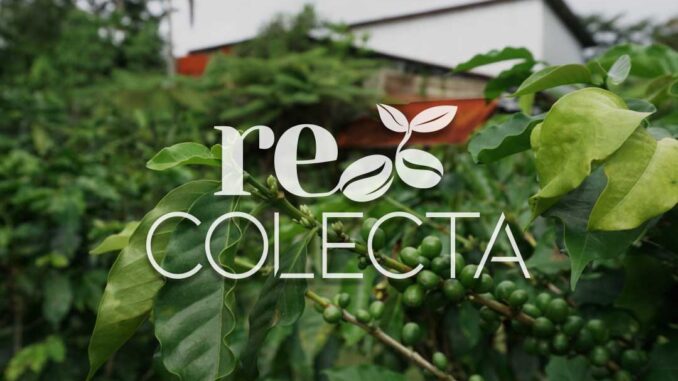
We find out how Baraka Coffee Roasters is working to restore the coffee industry in Puerto Rico through Re:Colecta.
BY VASILEIA FANARIOTI
SPECIAL TO BARISTA MAGAZINE ONLINE
Cover photo courtesy of Re:Colecta
Eduardo Trabada and Gabriel Beauchamp, owners of Baraka Coffee Roasters, started roasting coffee in 2014. At the time, they had no prior experience with roasting coffee and bought a machine without knowing how to use it. However, through trial and error, they became skilled at roasting coffee, and in the process, they have become valuable members of Puerto Rico’s coffee community.
The two friends came up with the Re:Colecta initiative, a project that teams up with local artists to create and sell art, with the goal of using 100% of the profits to give cash prizes to coffee pickers at the end of harvest. Today, we chat with them about how the project came to be, the issues that the Puerto Rico coffee industry is facing, and their thoughts on the future.
In Search of Good Coffee in Puerto Rico
It is difficult to find coffee that is 100% produced on the island of Puerto Rico, despite its long coffee-growing history. Gabriel and Eduardo feel proud to be able to offer such coffee to their customers.
“At the moment, Puerto Rico produces a very small fraction of what we consume locally, and to remedy that, the government imports and resells commercial quality semi-roasted coffee that it buys at auctions in countries like Mexico, the Dominican Republic, etc. in order to fill the huge deficit,” Gabriel explains.
The duo works closely with local producers to showcase the potential of coffee that is grown on the island. However, it’s not an easy task, as Puerto Rican coffee can be two to four times more expensive than imported commercial coffee.
Between hurricanes, political instability, and obstacles to economic development, the coffee industry in Puerto Rico has had a difficult time in recent years. High labor costs, a shortage of workers, and high operational costs have increased the price of coffee. Further, the lack of infrastructure and farming education make it difficult to produce a high-quality product to match that price. And so, the coffee industry in Puerto Rico is highly sensitive to these problems and in need of assistance.
Incentivizing the Coffee Pickers of Puerto Rico
Tackling all these problems at once is impossible, but Gabriel and Eduardo are certainly doing their part. Re:Colecta is a direct response to the labor shortage issue that local coffee farmers are facing. Eduardo explains that coffee pickers are paid by almud, which is basically a container with 28 pounds of cherries.
“The government establishes that each almud should be paid at $4.50, but everybody ignores that and pays more since nobody would do that kind of hard labor for $4.50 an almud,” says Eduardo. ”Even with $8+ they can barely find people to work the farm, and the coffee pickers tend to be older men and women. On average, it takes a picker anywhere from 45 minutes to one hour to pick 28 pounds of cherries.”

With Re:Colecta, Eduardo and Gabriel hope that they can incentivize coffee pickers to come back next year, and to tell others to join them. “There are three cash prices for the three workers that pick the most ripe coffee during the harvest season at a particular farm. Plus, each winner gets a certificate and a framed copy of the art piece created to raise the funds. We wish to make Re:Colecta a nonprofit so that we can access more funds and impact more farms every year,” Eduardo explains.
The coffee industry in Puerto Rico has faced many challenges in recent years, but Gabriel and Eduardo are working to make a difference. Re:Colecta is a great example of building a community around Puerto Rican coffee that not only preserves the culture and history of coffee on the island, but also promotes the agricultural industry.
We are excited to see what the future holds for Puerto Rican coffee.
You can find some of the original artwork used to raise funds for Re:Colecta here.
ABOUT THE AUTHOR
Vasileia Fanarioti (she/her) is a freelance copywriter and editor with a primary focus on the coffee niche. She has also been a volunteer copywriter for the I’M NOT A BARISTA NPO, providing content to help educate people about baristas and their work. You can follow her adventures at thewanderingbean.net.

